|
You have a choice when it comes to tense in your fiction’s narrative. Here’s an overview of the tenses you’ll most likely be working with, and some guidance on the benefits and challenges of each.
The present tense
Here’s an overview of the present tense, with basic examples:
The present is immediate, and that right-nowness forces the reader to stick close to the viewpoint character. We’re in the moment with them. That’s why it appeals to some fiction authors, and why others find it restrictive. With second-person viewpoints, the present tense is intensely voyeuristic, invasive even. Here’s an excerpt from Iain Banks’s Complicity (p. 60). This is a transgressor narrative with a difference – the narrator is anonymous, at least until later in the novel:
And in this example from a later chapter (p. 90), we’re back with the protagonist. Here, the main narrative tense is present. The viewpoint is first-person:
The next day I scrounge a Lambert & Butler off Rose in the Foreign News section, smoke it at my desk and get a real hit off it, then feel disgusted with myself and vow that’s the last one I’m going to smoke.
RECOMMENDATION The present tense is great if you want to shorten the distance between the reader and the viewpoint character. Present tense works particularly well for short fiction because space is limited. I use it often in my own shorts and flashes because it enables me to pack an immersive punch quickly. However, it’s tricky to manage if there are multiple viewpoint-character chapters or sections, all operating in the present tense. You’ll need to keep a close eye on the timelines so that the reader’s clear on what ‘now’ really means. If your plot twist hinges on deliberately duping them via your use of tense rather than story craft, you’ll break their trust. The present tense can also be tiring for readers because it’s emotionally immersive. If you’re writing a novel, you might consider using it only for certain viewpoint characters – your transgressor or victim, for example. In Let Me Lie, Clare Mackintosh mixes it up: the Anna-viewpoint chapters are set in first-person present; the Murray-viewpoint chapters are third-person past. The past tense Now let’s turn to the past tense, starting with some basic examples:
The past tense is the choice of most contemporary commercial fiction writers. What’s interesting is that readers are so used to this style that they can still immerse themselves in a past-tense narrative as though the story is unfolding now. Here’s an excerpt from T. M. Logan’s 29 Seconds (p. 73). We’re given a past-tense narrative with a third-person limited viewpoint (Sarah’s): WHEN PAST TENSE FLOPS – UNDERSTANDING PAST PERFECT Less experienced writers can end up in a pickle when referencing events that happened earlier than their novel’s now. The crucial thing to remember is that when we set a novel in the past tense, anything that happens in the story’s past will likely need the past perfect, at least when the action is introduced.
Here’s an excerpt from The Wife Between Us (p. 57) by Greer Hendricks and Sarah Pekkanen. This chapter’s primary narrative tense is past (see underlined verb):
When we’re told that ‘She stood’, that’s the novel’s now. But when the narrator recalls events that happened further back in time (bold) – Samantha’s decorating her bed, and the two women’s procuring a rug – these need to be anchored in the past-perfect tense: had, had been. When authors fail to anchor past events in a novel whose now is already set in the past tense, the reader will be confused. RENDERING BYGONE ROUTINE – UNDERSTANDING HABITUAL PAST Now and then, you might want to reference events from your novel’s past that happened routinely or habitually. This is where the habitual past tense comes into play, and the tools are would and used to. This excerpt from The Templar's Garden by Catherine Clover illustrates the usage. The narrative is set in third-person past but the viewpoint character is recalling regular journeys taken earlier in her life: And in Time To Win (p. 62), Harry Brett uses the simple past and past progressive for the most part, but then Frank, the viewpoint character, recalls something he’d done habitually in former times:
Like the past perfect, the habitual past acts as an anchor, so that readers don’t mix up the reminiscence of a routine event with the novel’s now. To see that confusion in action, replace ‘used to enjoy’ with the simple past: ‘enjoyed’. It reads as if Frank is enjoying driving down South Denes Road right now. If you don’t want to use the habitual past, then an alternative anchor is necessary. Here I’ve added an anchoring clause and changed the tense to past perfect (he’d, or he had):
RECOMMENDATION The past tense is flexible; it’s easier to shift narrative distance (the distance between the reader and the narrator) than is the case with the present tense, though this does increase the risk of flatter writing. Dramatic scenes – fights, escapes, arguments – could end up laboured if the writing isn’t lean and rich. Still, it’s traditional and readers are used to it. No one will get tired of reading in the past as long as the line craft is strong. Do take care, however, with rendering events that have taken place in your novel’s past. Use the past perfect or the habitual past when necessary to ensure your readers know what happened when. Summing up Write in the tense you feel most comfortable with, and that you think readers of your genre will be most comfortable reading. The past and the present both have their challenges and their advantages. The most important thing is that readers know where and when they are in the story. Cited sources
Louise Harnby is a line editor, copyeditor and proofreader who specializes in working with crime, mystery, suspense and thriller writers.
She is an Advanced Professional Member of the Chartered Institute of Editing and Proofreading (CIEP), a member of ACES, a Partner Member of The Alliance of Independent Authors (ALLi), and co-hosts The Editing Podcast.
18 Comments
Robbie Cheadle
22/9/2019 04:46:34 pm
Thank you for this, a lovely post.
Reply
Louise Harnby
22/9/2019 07:01:00 pm
You are very welcome, Robbie!
Reply
23/9/2019 10:42:56 am
Thank you for making the use of tenses so clear. I have often had the 'had' crossed out by critiquers in my online critique group. And they are authors, too!
Reply
Louise Harnby
23/9/2019 11:28:12 am
Cheers, Vivienne! The past perfect foxes some people but it's the ideal tool for anchoring when required.
Reply
Cat
23/9/2019 01:03:53 pm
Thanks for this! I've started a long thought-about novel recently and wondered about my tenses in the opening scene as I try to introduce back story as well as the unfolding events. You've reassured me that I'm getting it right!
Reply
Louise Harnby
23/9/2019 01:27:22 pm
Congratulations on your novel, Cat. Thanks so much for letting me know the article validated how you're handling your tenses. That's lovely to hear!
Reply
Denise
20/10/2019 03:33:38 pm
Personally, I don't think writing a whole book in present tense works at all. It can be used as you say, for a pov character or as Dickens sometimes used it to express a short chapter event, but I find it impossible to sink into a story in present tense and automatically reject books written completely in present tense.
Reply
Louise Harnby
20/10/2019 06:32:31 pm
Complicity worked for me. I've read a few other mysteries where it works and I love it in short stories because of its immediacy. But it is tough-going!
Reply
31/8/2020 05:19:42 am
I'm writing my 3rd book and i was having a tough deciding on the tense to use for the protagonist. your article helped sort out issues in my head. i will use 1st person present tense for the protagonist and 3rd person past tense for the other chapters. very helpful post indeed. I'll be reading the other posts on your blog too. Thank you
Reply
Louise Harnby
1/9/2020 03:00:13 pm
So glad it helped, Kanchana!
Reply
Louise Harnby
15/11/2020 12:54:32 pm
You're welcome, Linda!
Reply
Richard
15/2/2021 02:15:23 pm
What’s interesting is <s>that</s> readers are so used to this style <s>that</s> they can still immerse themselves in a past-tense narrative as though the story is unfolding now.
Reply
Tom
10/3/2021 11:15:32 am
Thank you for this. My concerns and questions were addressed and answered.
Reply
Min
6/11/2022 02:27:38 am
Hi, thank you so much for this post. I have just started writing a fiction piece and am trying to find a concrete explanation when some tenses should work. You've completely explained them in this post. The excerpts were very helpful too. Thank you again.
Reply
Chris
2/2/2023 10:19:20 pm
Thank you for so clearly explaining this. I'm working on editing a novel that's written in past tense. When it has scenes of a backstory before the current (past) time, it's written in past perfect. That I follow, but does EVERY sentence have to be in past perfect? It seems so tedious/distracting to change it in every sentence and write the word "had" so many times. If the paragraph starts with past perfect and we get that it was 20 years ago, can the rest of the paragraph be written in past tense until a scene change (or new paragraph) comes along? Or is that a complete no-no?
Reply
Natalie
14/8/2023 12:50:24 pm
Very helpful, thank you so much.
Reply
Eve
19/11/2023 05:03:34 pm
Thanks Louise for the concise explainer.
Reply
Leave a Reply. |
BLOG ALERTSIf you'd like me to email you when a new blog post is available, sign up for blog alerts!
TESTIMONIALSDare Rogers'Louise uses her expertise to hone a story until it's razor sharp, while still allowing the author’s voice to remain dominant.'Jeff Carson'I wholeheartedly recommend her services ... Just don’t hire her when I need her.'J B Turner'Sincere thanks for a beautiful and elegant piece of work. First class.'Ayshe Gemedzhy'What makes her stand out and shine is her ability to immerse herself in your story.'Salt Publishing'A million thanks – your mark-up is perfect, as always.'CATEGORIES
All
ARCHIVES
July 2024
|
|
|
|


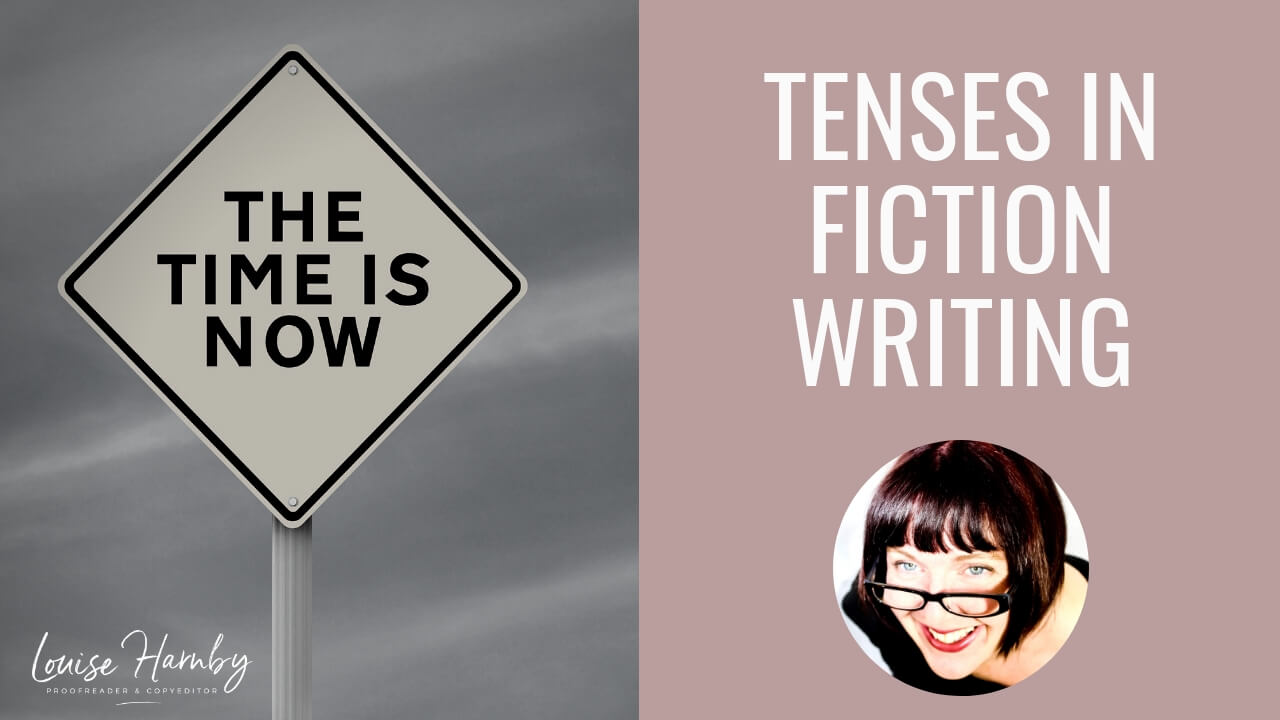
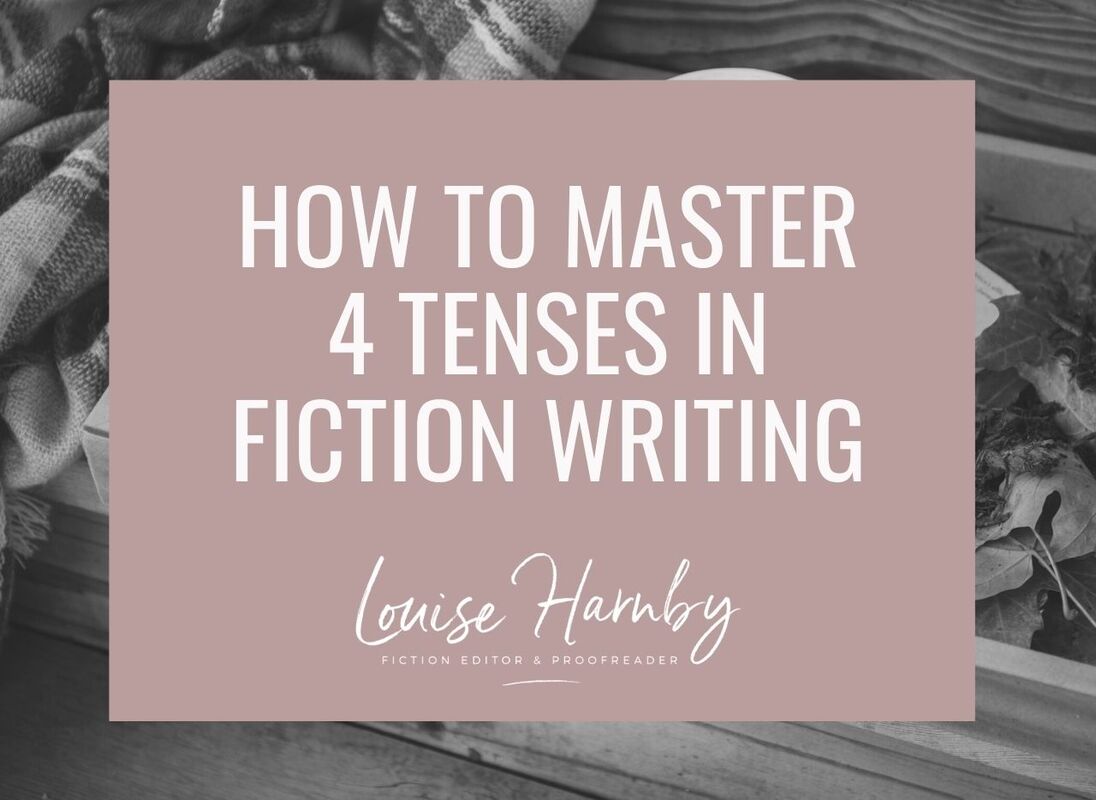
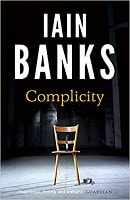

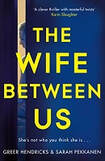
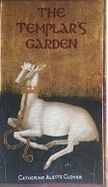
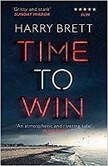













 RSS Feed
RSS Feed





